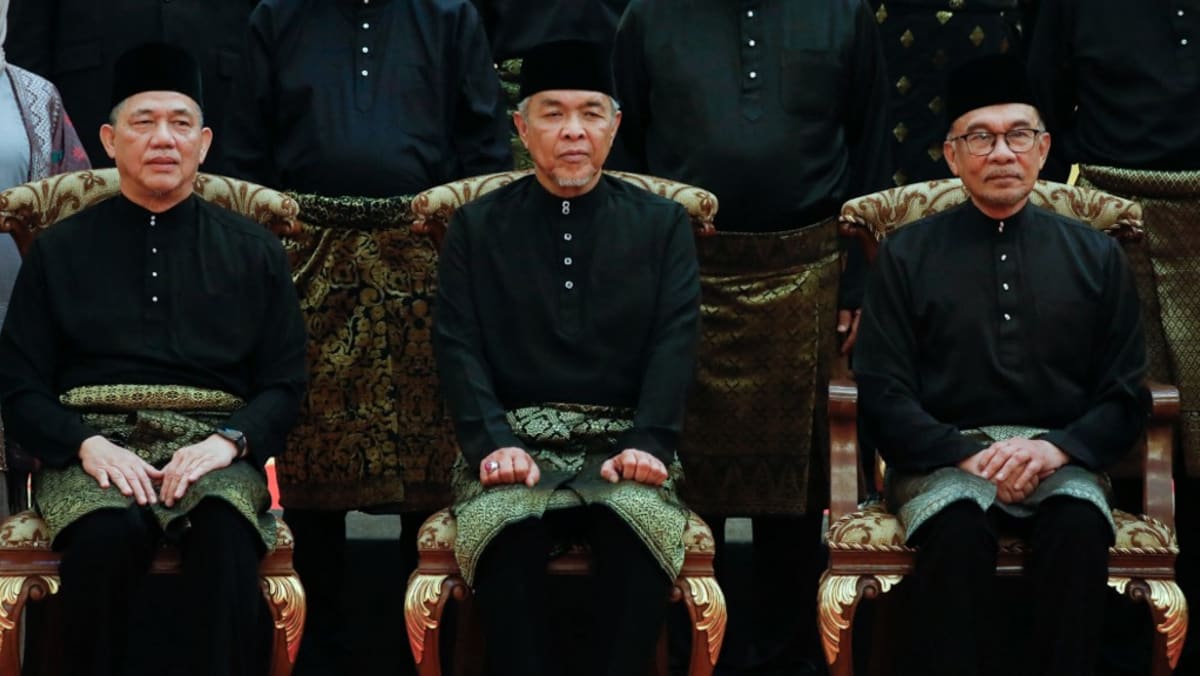
WHAT IS HOLDING ANWAR’S GOVERNMENT TOGETHER
With the MOU, statutory declarations “auctioned and sold” as a sign of support in past governments appear inferior. In addition to its rampant misuse in the past, the ambiguous and individual nature of statutory declarations has made them unreliable tools to secure MPs’ support.
The classic image here is Muhyiddin Yassin showing stacks of statutory declarations in front of the press, insisting he had the majority when he did not (the former premier is the head of Perikatan Nasional, PH’s key rival for control of government).
While the legal aspect was not the only reason that led to the formation of the government and its continuance, it is undeniable that it serves as an important bulwark against a repeat of the 2020 Sheraton Move, where large-scale defections set off a period of political instability.
Beyond the MOU, there are also strategic and relational reasons that hold Anwar’s government together.
On strategic importance, PH, BN, and GPS have realised that they complement each other in the governing coalition.
PH has proven itself to be a powerhouse in urban areas, but it remains weak in the rural, conservative Malay, and East Malaysian settings. BN understands that winning back urban votes still remains a pipe dream, so it might be better to strengthen its rural hold while relying on PH to augment BN where it is weak. GPS recognises that they have more ideological alignment with PH compared to PN. In East Malaysia, the latter’s Islamic credentials proved to be an electoral liability.
It is possible that the three coalitions could work together in the next state and general elections, as they are not competing for the same slice of the political pie.
Seat negotiations typically break down when parties’ potential support bases are grossly similar, like Muda and Parti Keadilan Rakyat, United Malays National Organization (UMNO) and Parti Pribumi Bersatu Malaysia and Parti Islam SeMalaysia (PAS). This was the main reason why the Muafakat Nasional pact between UMNO and PAS, and the electoral pact between BN and PN, could not hold once elections loomed.
